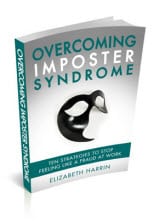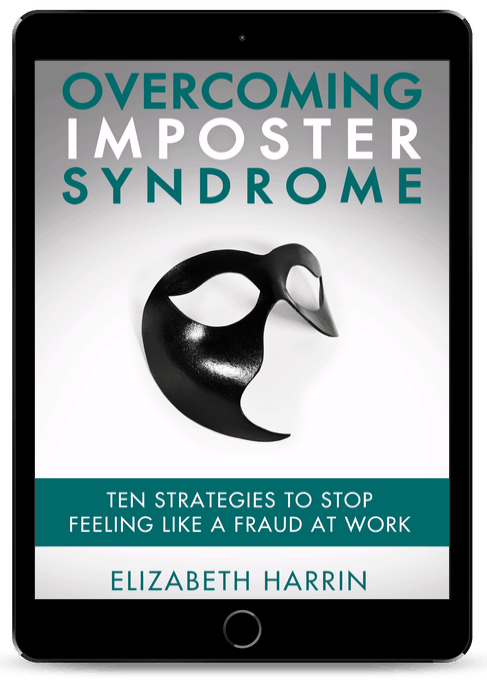How to Overcome Imposter Syndrome
This blog is reader-supported. When you purchase something through an affiliate link on this site, I may earn some coffee money. Thanks! Learn more.
What is Imposter Syndrome?
Imposter Syndrome is not a medical condition. It is a term for the feeling you have when you believe that you do not really know what you are doing. It is self-doubt.
You know how you feel when you get a new project or a whole lot more responsibility and suddenly you feel you’re in the wrong job? It’s as if you have to step into someone else’s shoes every day as your own just aren’t good enough.
You’re not alone — that feeling is Imposter Syndrome.
Imposter Syndrome is the feeling of self-doubt you have when you believe you don’t really know what you are doing.
Who came up with the concept of Imposter Syndrome?
When Pauline Clance was in graduate school, she was constantly worrying that she wasn’t good enough. She didn’t think her performance in exams was adequate. She dwelt on the information she didn’t know instead of what she did.
Her friends grew tired of hearing her worries, so she stopped sharing them. She managed to get good grades in her exams, but was still worried that she wasn’t measuring up to the achievements of others.
Pauline didn’t know it at the time, but she had Imposter Syndrome.
She went on to develop the concept of Impostor Phenomenon with Susanne Imes. They are widely published on the topic. Today, we commonly know it now as Imposter Syndrome.
What does Imposter Syndrome feel like?
You attend a meeting where the discussion goes over your head and you suddenly feel like an idiot, even though you are supposed to be taking the minutes. You believe that you are in completely the wrong job and the wrong company and you are in no way worthy of holding your current position.
Surely it is only a matter of time before someone notices that you are not up to the job and fires you?
That’s how Imposter Syndrome manifests itself: it undermines your self-confidence. It can hit anyone, at any time.
There are loads of stories from men and women struggling with Imposter Syndrome in my book, Overcoming Imposter Syndrome.
Who gets Imposter Syndrome?
We all get it — men and women. When I speak at conferences about imposter syndrome I ask people in the audience to put up their hand if they have ever felt like a fraud at work, and you know what?
Nearly every hand goes up, every time.
In reality, lots of people feel that they don’t measure up. When you take on something new – a new project, a new responsibility – you might be surrounded with people who are subject matter experts or who have been in a similar role as yours for years.
It feels as if they know everything, and you don’t know anything at all.
Worry, concern, fear, shame, embarrassment, being overwhelmed: all these are reasons that keep people quiet about their Imposter feelings.
If you are brave enough to ask your colleagues whether they have ever felt as if they are splashing around in the deep end while everyone else swims gracefully by, then you are breaking the silence around Imposter Syndrome.
Go on, ask someone.
When you tell the truth about how you feel, you will encourage other people to do the same. Your truth gives them permission to act in the same way. And that changes things for everyone.
Is Imposter Syndrome normal?
Feeling like a fraud is (unfortunately) very normal. There is a name for these feelings and by now you know that the name is Imposter Syndrome.
You are not alone in feeling like this, and just knowing that can be a step towards overcoming Imposter Syndrome, regaining your self-confidence and feeling like you have all the skills you need to tackle life at work.
3 Ways to overcome Imposter Syndrome [Video]
In this video, which was filmed at PMI Synergy in London, I share 3 reasons why we can feel like frauds at work and 3 tips to overcome Imposter Syndrome.
It’s 16 minutes long, safe for work!
For more tips on how to overcome Imposter Syndrome, read Overcoming Imposter Syndrome.
Overcoming Imposter Syndrome: A How To Guide
Overcoming Imposter Syndrome explains what Imposter Syndrome is, the symptoms and shares 10 ways to overcome those fraudulent feelings. The book includes stories from men and women who have built their self-confidence, tackled Imposter Syndrome and found their own ways to feel more positive about their performance at work.
Most of the books about Imposter Syndrome explain the symptoms and the rationale behind why we feel like that.
Learning about why we feel like that is important but I wanted to write something practical that would help people make changes to their attitudes and behavior straightaway. The book is full of practical tips from me and people I interviewed.
Helen, one of the people who got an early copy, said, “I am now 58 and retired. I wish someone had given me a book like yours about 25 years ago. I have learnt all the lessons in it the hard way.”
Get the ebook now: Overcoming Imposter Syndrome: Ten Strategies To Stop Feeling Like a Fraud at Work.
Quick Answers
What is imposter syndrome also known as?
Imposter syndrome is also known as imposter phenomenon, fraud syndrome, the imposter experience or imposterism.
How do you stop feeling like an imposter?
Stop thinking the thoughts that lead you to believe you aren’t good enough.
Recognize your true skills and appreciate the contribution you make.
Understand your real weaknesses and look at ways to plug those gaps.
Who suffers from imposter syndrome?
When I speak about imposter syndrome at conferences, almost everyone (men and women) confess to feeling like a fraud at some point in their career. Imposter syndrome is widespread and most people have feelings of self-doubt from time to time.
More resources for Imposter Syndrome
- The Secret Thoughts of Successful Women by Valerie Young. (I loved this book.)
- Untamed: Stop pleasing, start living by Glennon Doyle (an inspirational community leader — follow her on Facebook for more on how she leads grass roots campaigns to truly make a difference)
- Playing Big: A practical guide for women like you by Tara Mohr (whose work I reference in my talk)
- Mentoring is also a good choice if you want to talk things through with someone.


